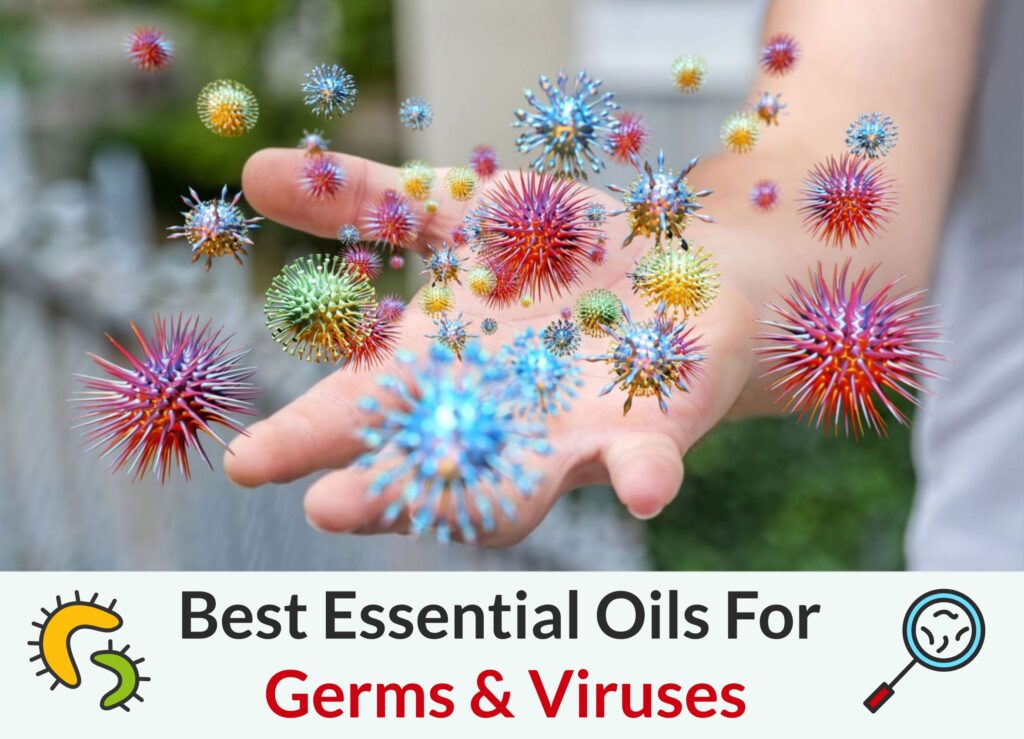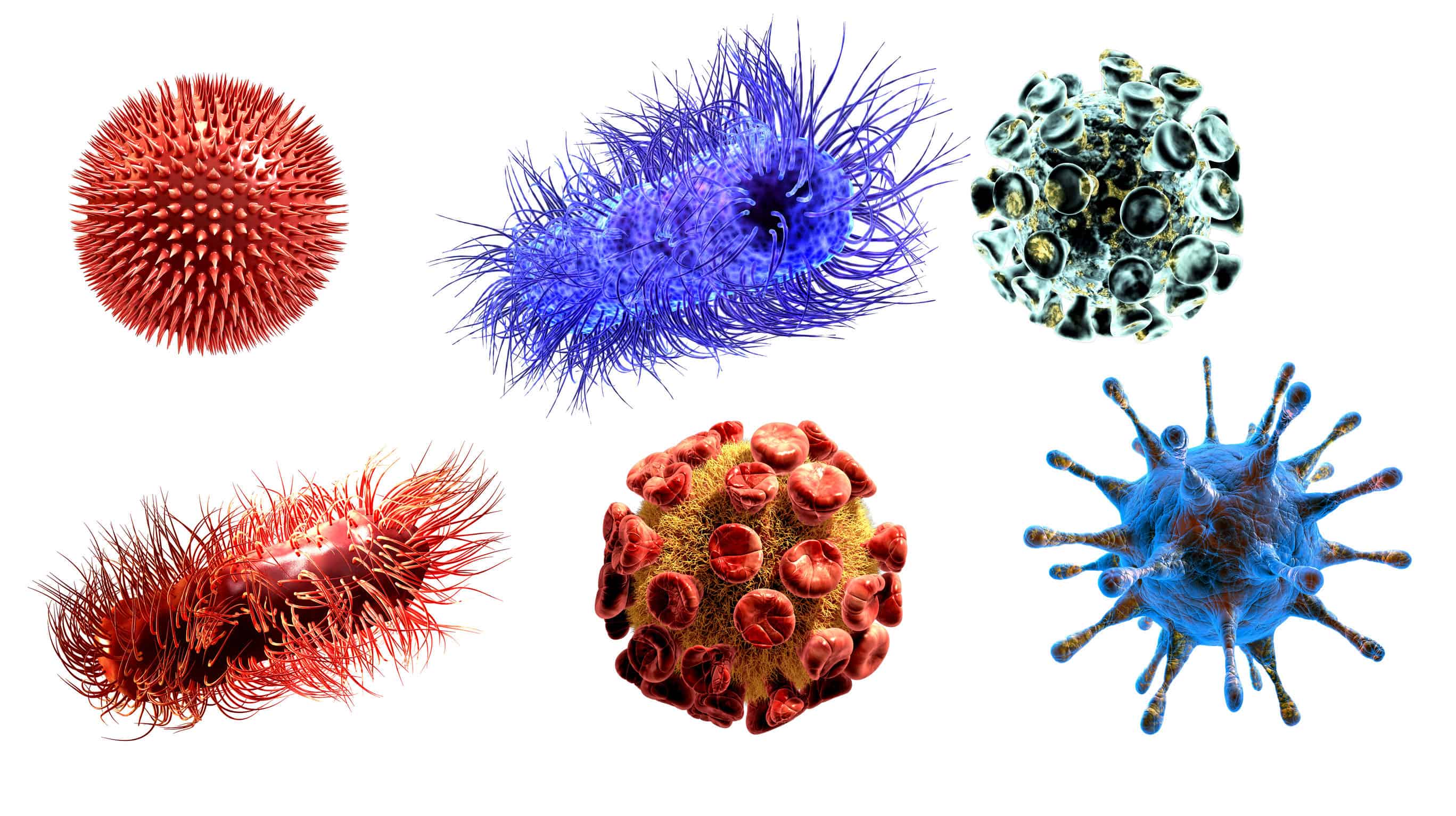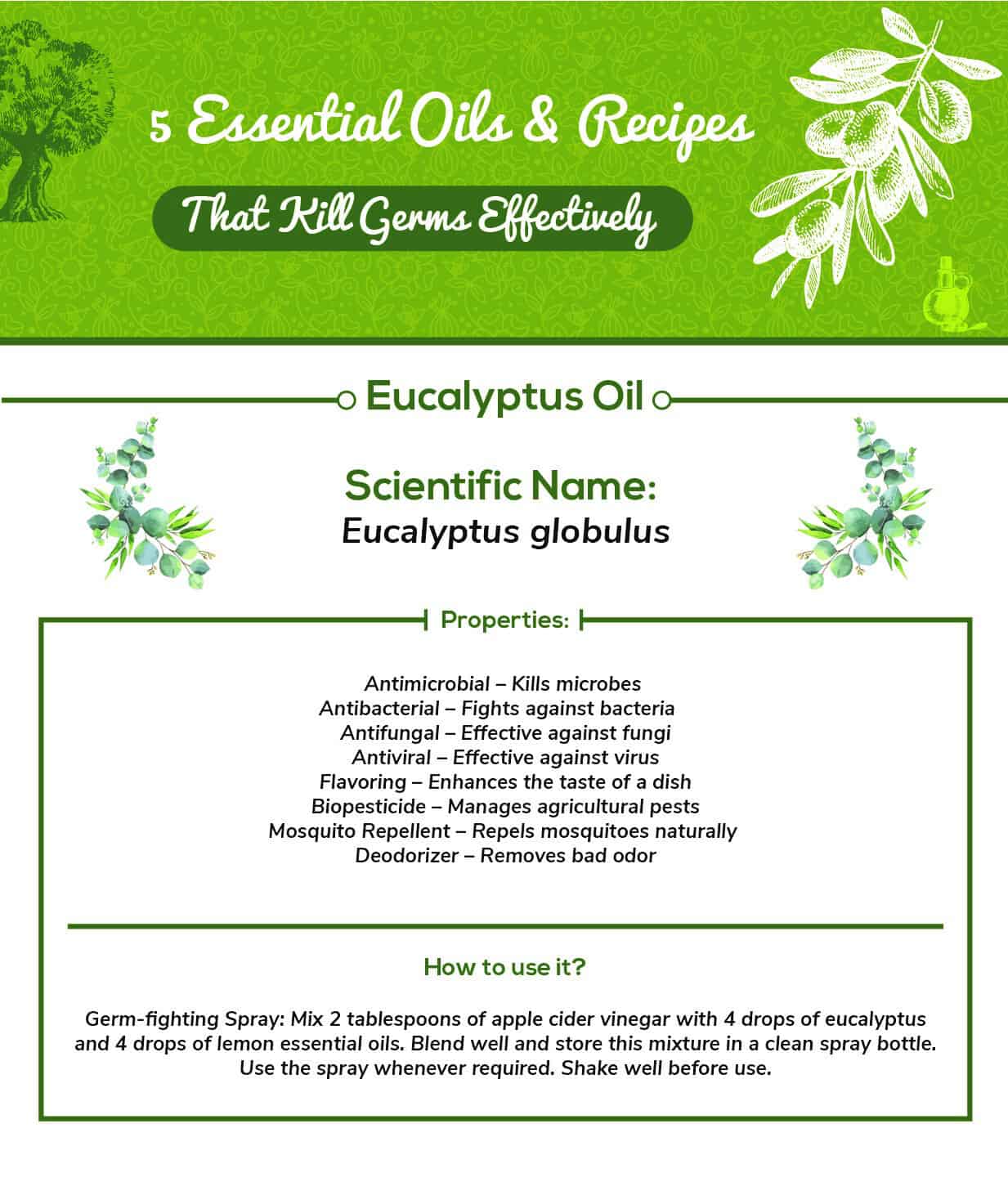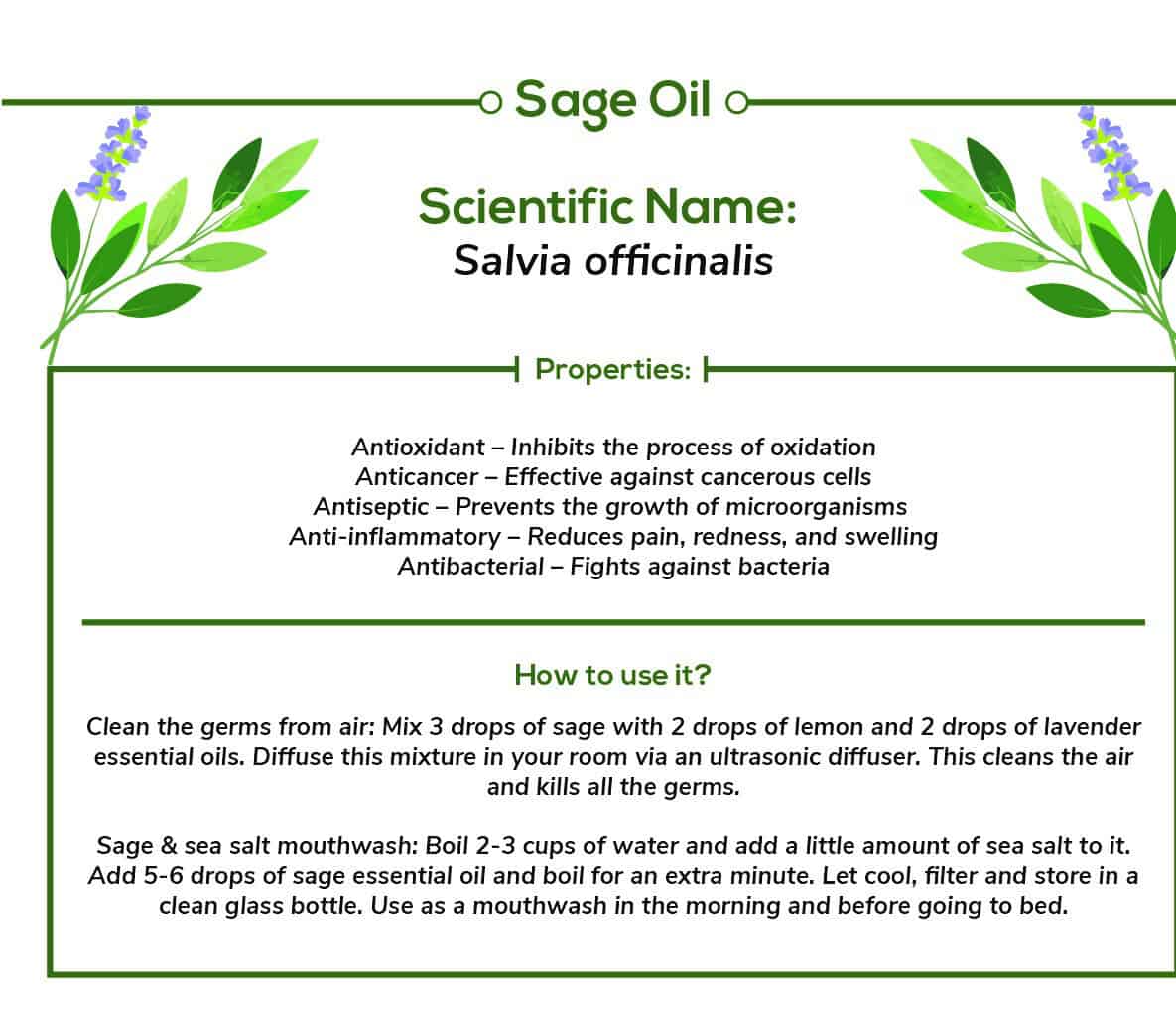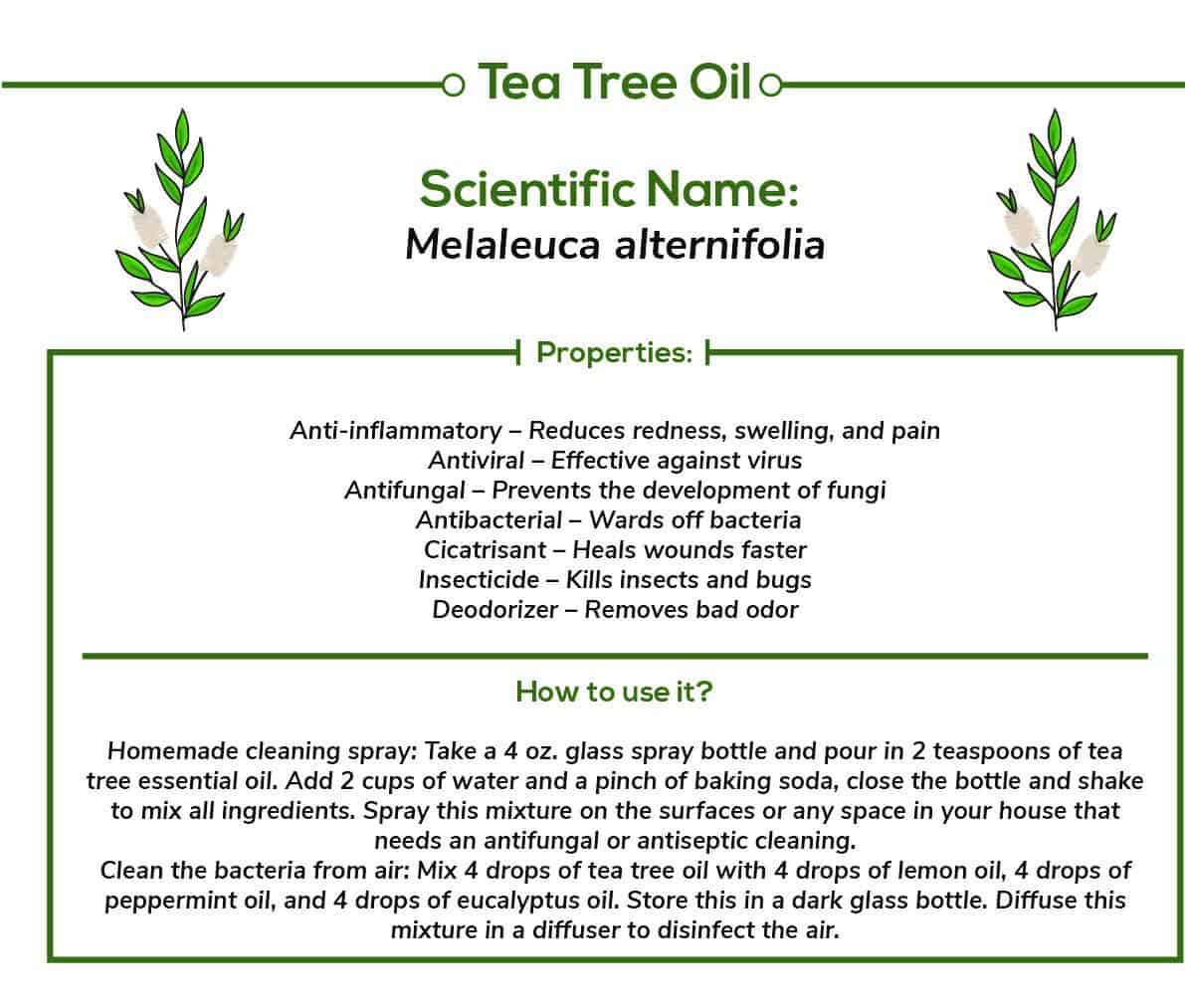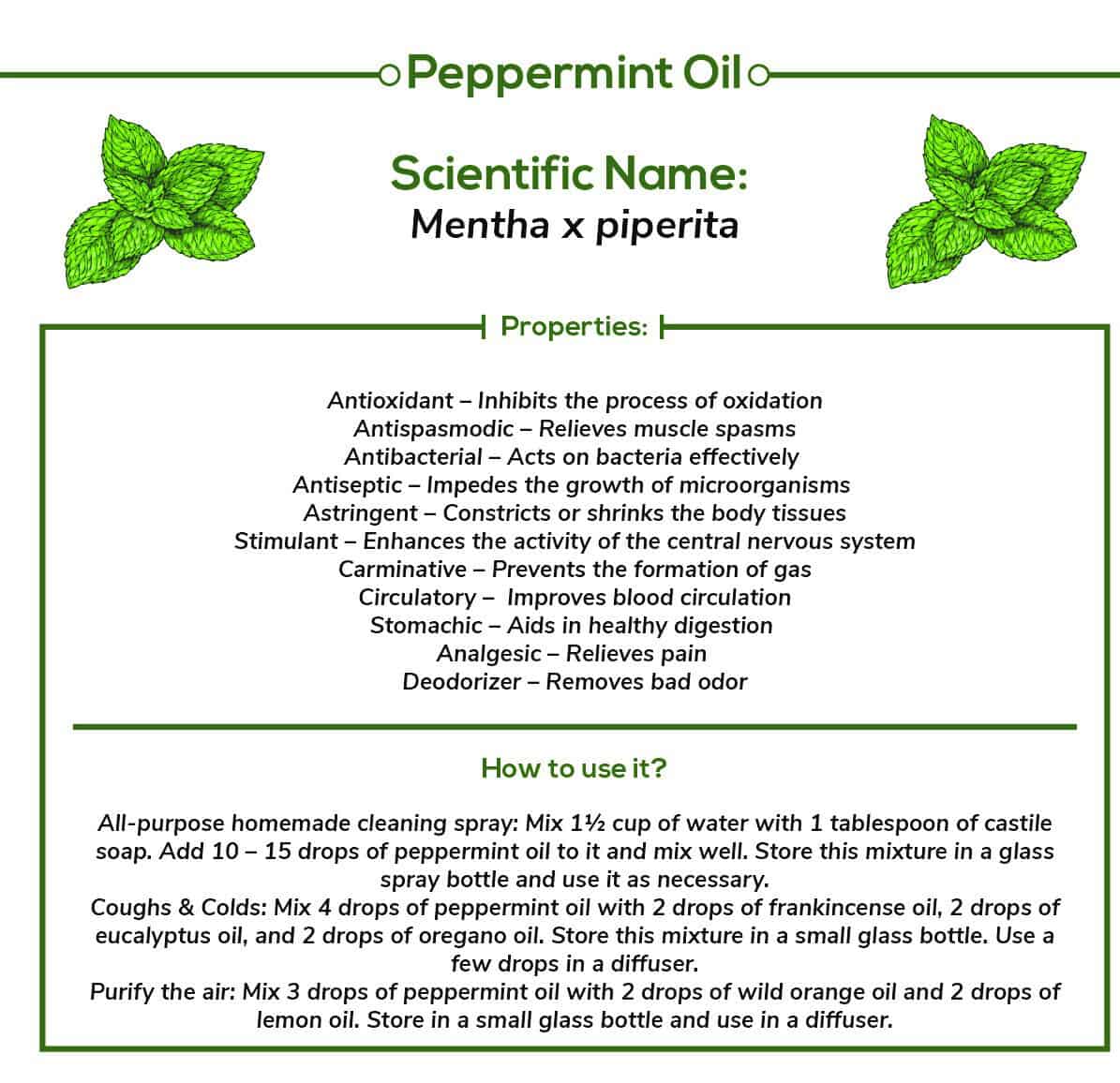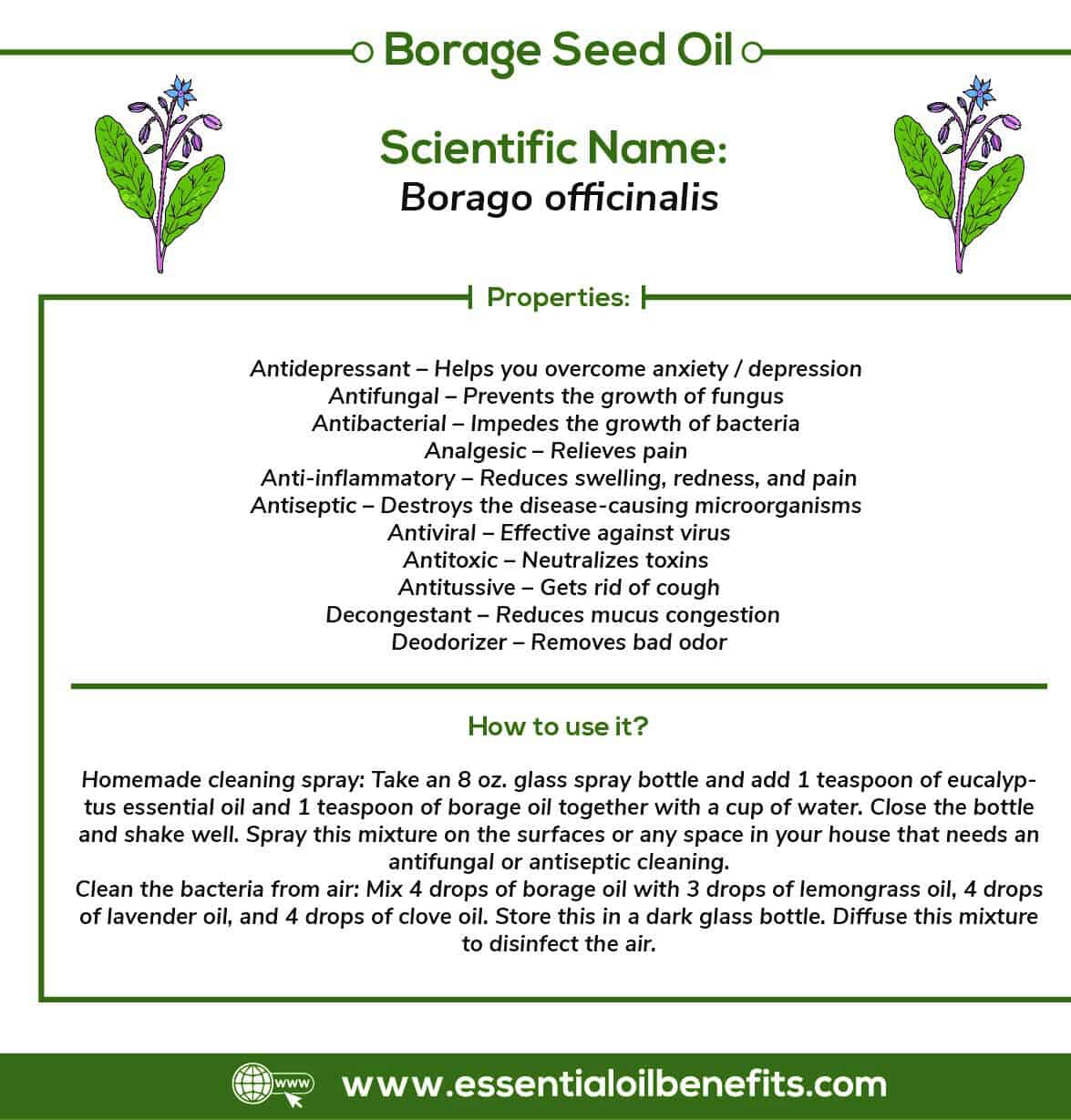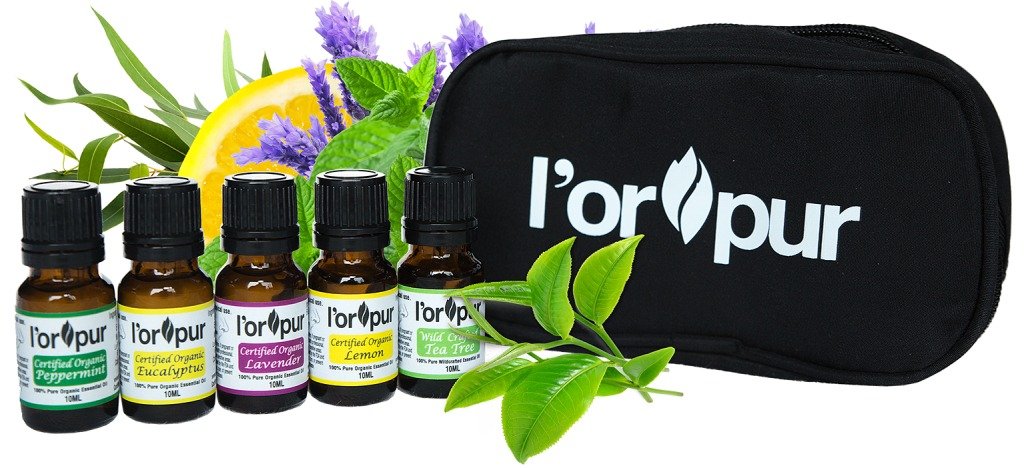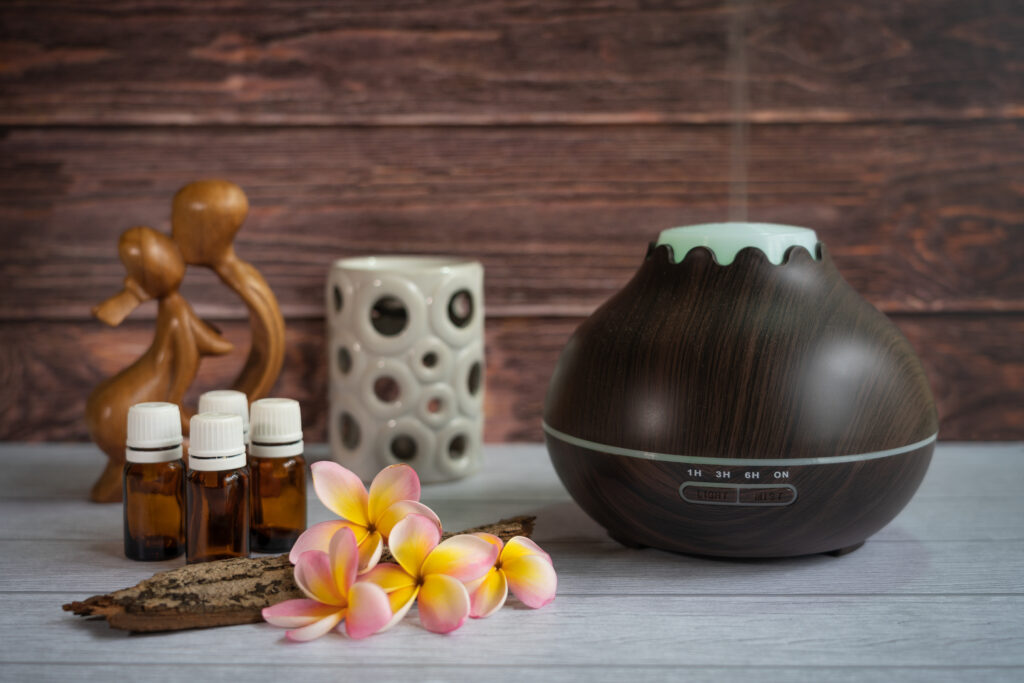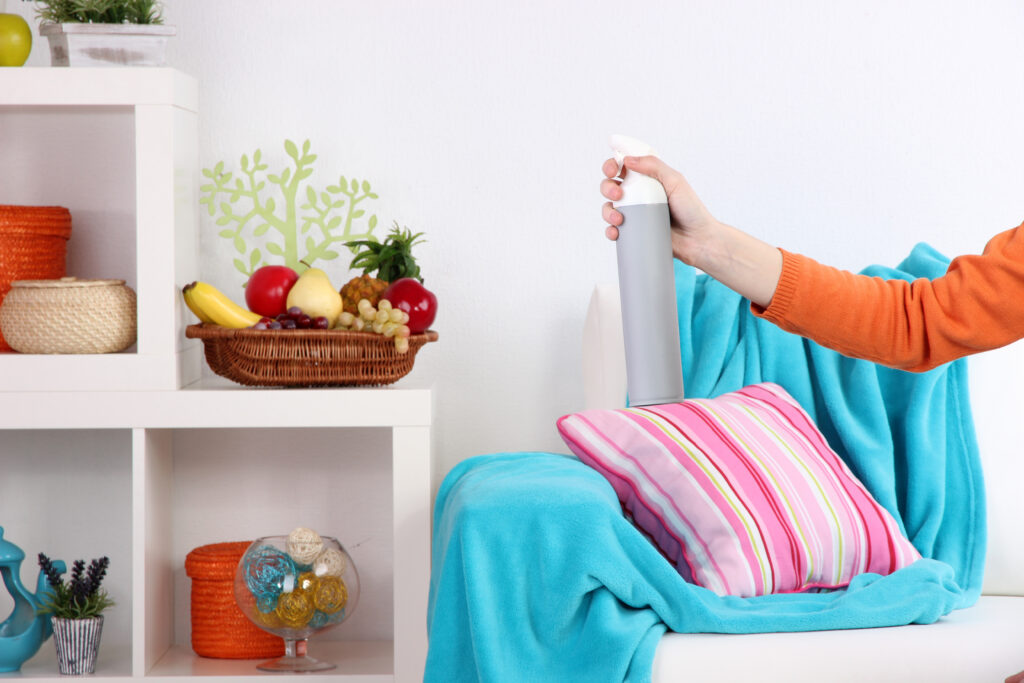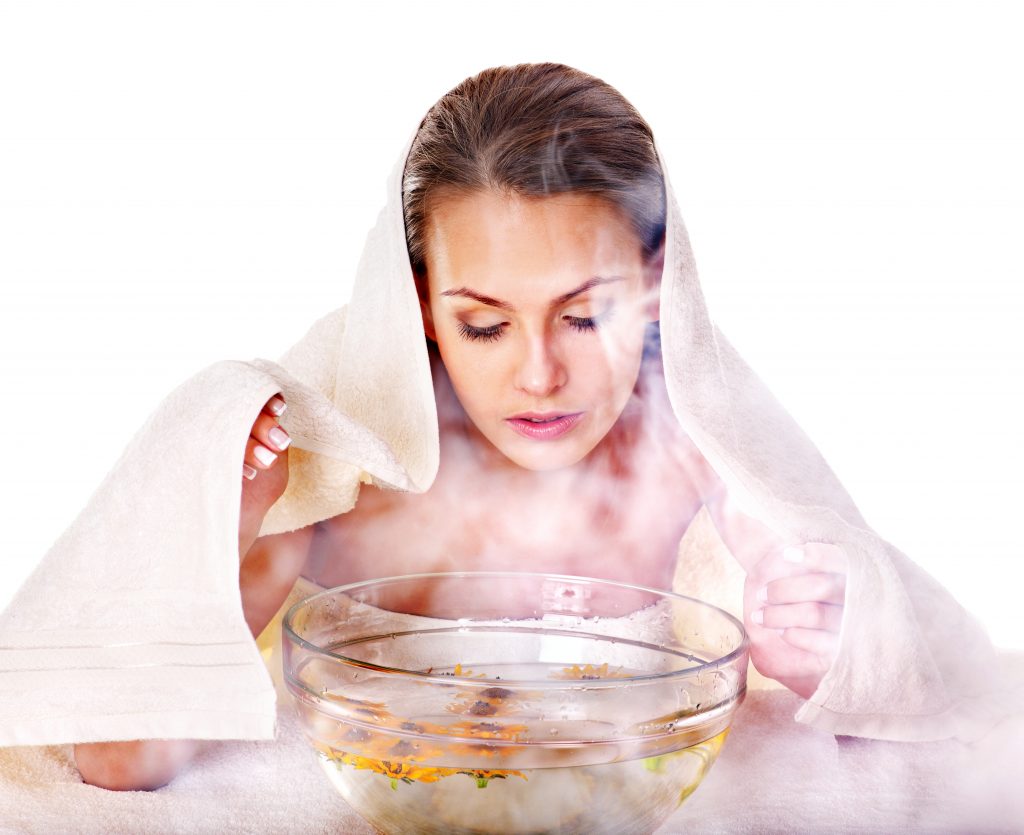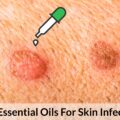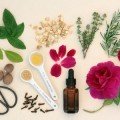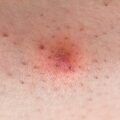Whether you like it or not, germs and viruses are a part of life. No matter how clean you are and how hygienic your surroundings are, you will encounter them every day. Though many chemical-based products can help you to kill them, they harm your health in some way or another.
Happily, essential oils are a great way to get rid of germs and viruses. But not all plant oils are created equally. The best essential oils for killing germs are listed below. These exhibit strong antibacterial and antimicrobial properties, thus, making them highly effective.
So, let’s understand each of these essential oils in detail and how they can help you to fight germs and viruses and yet maintain your health.
But before we get to that, here is a little, but yet important information you should read.
What Can Germs Do To Your Body?
Germs (or microbes) are everywhere. You can find them in food, air, soil, water, animals, plants, any surface, and even your body. But not all germs are harmful. While some are good, others are bad.
Germs can be classified into four types:
- Bacteria
- Virus
- Fungi
- Protozoa
Once germs attack your body, they can easily snuggle and stay there for a long time. They consume all your energy and nutrients and start generating toxins. These toxins cause common infections such as rashes, fever, diarrhea, stomach aches, colds, coughs, and vomiting.
5 Essential Oils That Kill Germs Effectively
The essential oils listed below are proven to be effective against:
- Fungi
- Viruses
- Bacteria
You can even try blending them for a stronger effect.
1. Eucalyptus Oil
Scientific Name: Eucalyptus globulus
Eucalyptys globulus is commonly called Southern Blue Gum. It is a tall, evergreen tree, which is commonly found in the south-eastern parts of Australia. It grows to a height of 45 meters and is characterized by smooth barks. The leaves of Eucalyptys globulus are steam distilled to extract its essential oil.
Properties:
- Antimicrobial – Kills microbes
- Antibacterial – Fights against bacteria
- Antifungal – Effective against fungi
- Antiviral – Effective against virus
- Flavoring – Enhances the taste of a dish
- Biopesticide – Manages agricultural pests
- Mosquito Repellent – Repels mosquitoes naturally
- Deodorizer – Removes bad odor
How does it help?
E. globulus is one of the best essential oils for killing germs. To examine its in-vitro antibacterial properties, the essential oil of this plant were extracted via hydro-distillation process.
The inhibitory effects eucalyptus essential oil were examined against E. coli (Escherichia coli) and S. aureus (Staphylococcus aureus) through dilution broth & agar disc diffusion methods.
The results showed that E. globulus oil had strong antibacterial properties in preventing the development of Gram-positive & Gram-negative bacteria. This is mainly due to the compounds 1,8-cineole, ρ-cymene, and α- pinene.
Further, it has antiviral and antifungal properties. Eucalyptus oil consists mainly of monoterpene compounds like gamma-terpinene, alpha-terpinene, ρ-cymene, alpha-pinene, alpha-terpineol, terpinen-4-ol, citral, 1,8-cineole, and thymol. When these components were examined for their antiviral properties (in vitro), it showed that it was effective against HSV-1 (Herpes Simplex Virus – Type 1).
How to use it?
Germ-fighting Spray: Mix 2 tablespoons of apple cider vinegar with 4 drops of eucalyptus and 4 drops of lemon essential oils. Blend well and store this mixture in a clean spray bottle. Use the spray whenever required. Shake well before use.
2. Sage Oil
Scientific Name: Salvia officinalis
Salvia officinalis is also known as common sage, culinary sage, or garden sage. It is an evergreen, perennial subshrub, which has grayish leaves, woody stems, and purple flowers.
The benefits and use of sage (Salvia) goes back to ancient times. It was widely used in traditional medicines for pain relief, eliminating free radicals, inflammation, angiogenesis, viral, and bacterial infections.
Properties:
- Antioxidant – Inhibits the process of oxidation
- Anticancer – Effective against cancerous cells
- Antiseptic – Prevents the growth of microorganisms
- Anti-inflammatory – Reduces pain, redness, and swelling
- Antibacterial – Fights against bacteria
How does it help?
According to a research paper published in the Iranian Journal of Microbiology, sage exhibits strong antibacterial properties.
To demonstrate this, a few researchers took a mouthwash containing the extracts of Salvia officinalis (or sage) and another placebo mouthwash that didn’t contain any active ingredient. The idea was to test the clinical effects on SM (Streptococcus mutans) that causes dental plaque in school children.
The research involved 70 school girls as participants (between the ages 11 and 14), each with the same oral hygiene and socioeconomic conditions. These 70 students were divided randomly into two groups of 35 students each.
The first group was administered with Sage Mouthwash, whereas the other group with Placebo Mouthwash.
When their plaque samples were collected, the results were evident. Students who used sage mouthwash saw a significant reduction in the number of Streptococcus mutans (a type of bacteria) in dental plaque. This is mainly due to its compounds like thujone, camphor, and 1,8-cineole.
How to use it?
- Clean the germs from air: Mix 3 drops of sage oil with 2 drops of lemon oil and 2 drops of lavender oil. Diffuse this mixture in your room via an ultrasonic diffuser. This disinfects the air and kills all the germs.
- Sage & sea salt mouthwash: Boil 2-3 cups of water and add a little amount of sea salt to it. Add 5-6 drops of sage essential oil and boil for an extra minute. Let cool, then filter and store in a clean glass bottle. Use as a mouthwash in the morning and before going to bed.
3. Tea Tree Oil
Scientific Name: Melaleuca alternifolia
Originated from Australia, tea tree is another very effective essential oil for killing germs. The tea tree plant is widely found in New South Wales and southeastern parts of Queensland in Australia.
Melaleuca alternifolia are small trees that grow to a height of 20 feet with bushy crowns and white, papery barks. Their leaves are soft, smooth, and linear, each 1 mm wide & 10–35 mm long. The leaves contain a rich amount of oil.
Properties:
- Anti-inflammatory – Reduces redness, swelling, and pain
- Antiviral – Effective against virus
- Antifungal – Prevents the development of fungi
- Antibacterial – Wards off bacteria
- Cicatrisant – Heals wounds faster
- Insecticide – Kills insects and bugs
- Deodorizer – Removes bad odor
How does it help?
Of all the properties that tea tree oil has, its antimicrobial effects are the most effective.
Tea tree was traditionally used by the Australian Aborigines. They crushed tea tree leaves and inhaled its aroma to treat colds and coughs. They even diluted it and sprinkled on wounds to help them heal faster.
The antimicrobial properties are attributed to compounds like α-terpineol and terpinen-4-ol.
From keeping your house clean to treating fungal/bacterial/viral infections, tea tree essential oil is very effective.
How to use it?
- Homemade cleaning spray: Take a 4 oz. glass spray bottle and pour in 2 teaspoons of tea tree essential oil. Add 2 cups of water and a pinch of baking soda, close the bottle and shake to mix all ingredients. Spray this mixture on the surfaces or any space in your house that needs an antifungal or antiseptic cleaning.
- Clean the bacteria from air: Mix 4 drops of tea tree oil with 4 drops of lemon oil, 4 drops of peppermint oil, and 4 drops of eucalyptus oil. Store this blend in a dark glass bottle. Diffuse in a diffuser to disinfect the air.
4. Peppermint Oil
Scientific Name: Mentha x piperita
Peppermint is a hybrid between spearmint and watermint. Though it is native to Middle East and Europe, it is cultivated throughout the world.
It is a perennial plant, which grows to a height of 30-90 cm. It has smooth stems with rhizomes wide-spreading. The leaves are dark green and have a minty, herbaceous flavor.
The use of peppermint dates back the ancient Egyptians times, as early as the 13th century. From treating skin problems to preventing free radical damage and keeping bacteria at bay, peppermint oil can do wonders.
Properties:
- Antioxidant – Inhibits the process of oxidation
- Antispasmodic – Relieves muscle spasms
- Antibacterial – Acts on bacteria effectively
- Antiseptic – Impedes the growth of microorganisms
- Astringent – Constricts or shrinks the body tissues
- Stimulant – Enhances the activity of the central nervous system
- Carminative – Prevents the formation of gas
- Circulatory – Improves blood circulation
- Stomachic – Aids in healthy digestion
- Analgesic – Relieves pain
- Deodorizer – Removes bad odor
How does it help?
Peppermint has strong antibacterial properties. It is highly effective against pathogenic bacteria such as Pseudomonas aureus, Bacillus subtilis, Serratia marcesens, Streptococcus aureus, and Pseudomonas aerogenosa.
When the antibacterial activity of Mentha x piperita was examined via agar well diffusion method, it was found that the compounds menthol and ethyl acetate helped in killing the bacterial pathogens.
How to use it?
- All-purpose homemade cleaning spray: Mix 1½ cup of water with 1 tablespoon of castile soap. Add 10 – 15 drops of peppermint oil to it and mix well. Store this mixture in a glass spray bottle and use it as necessary.
- Coughs & Colds: Mix 4 drops of peppermint oil with 2 drops of frankincense oil, 2 drops of eucalyptus oil, and 2 drops of oregano oil. Store this mixture in a small glass bottle. Use a few drops in a diffuser.
- Purify the air: Mix 3 drops of peppermint oil with 2 drops of wild orange oil and 2 drops of lemon oil. Store in a small glass bottle and use in a diffuser.
5. Borage Oil
Scientific Name: Borago officinalis
Borage oil is obtained from the seeds or flowers of Borago officinalis via a cold-pressing method. It is also known as Starflower and belongs to the Boraginaceae (or forget-me-not) family.
Borage is native to the Mediterranean region. It is a perennial plant that grows to a height of 2 feet. It has large, hairy leaves with pink flowers. They taste and smell like cucumbers.
From treating allergic conditions to alleviating arthritic symptoms, borage seed oil can be of great help.
Properties:
- Antidepressant – Helps you overcome anxiety and depression
- Antifungal – Prevents the growth of fungus
- Antibacterial – Impedes the growth of bacteria
- Analgesic – Relieves pain
- Anti-inflammatory – Reduces swelling, redness, and pain
- Antiseptic – Destroys the disease-causing microorganisms
- Antiviral – Effective against virus
- Antitoxic – Neutralizes toxins
- Antitussive – Gets rid of cough
- Decongestant – Reduces mucus congestion
- Deodorizer – Removes bad odor
How does it help?
When the antibacterial properties of Borago officinalis were evaluated, it was found to be highly effective against bacteria like Staphylococcus aureus, Listeria monocytogenes, Salmonella enterica, and Enterobacter spp. These are associated with food poisoning and other foodborne diseases.
How to use it?
- Homemade cleaning spray: Take an 8 oz. glass spray bottle and add 1 teaspoon of eucalyptus essential oil and 1 teaspoon of borage oil together with a cup of water. Close the bottle and shake well. Spray this mixture on the surfaces or any space in your house that needs an antifungal or antiseptic clean.
- Clean the bacteria from air: Mix 4 drops of borage oil with 3 drops of lemongrass oil, 4 drops of lavender oil, and 4 drops of clove oil. Store this in a dark glass bottle. Diffuse this mixture to disinfect the air.
Recommended Product
You can find 3 of the above-mentioned essential oils (eucalyptus, peppermint, tea tree) in my L’orpur Organic Kit. It comes with a complimentary carry bag as well as a 50 x recipes PDF download.
Now lets discover some of the best essential oils to prevent spread of viruses…
Top 10 Antiviral Essential Oils
1. Eucalyptus
The leaves of the Southern Blue Gum or the majestic, evergreen eucalyptus tree yields one of the most famous and potent oils in aromatherapy. The cooling, pain relieving effect is just one of the benefits of this extraordinary extract; the other is its profound ability to neutralize disease causing germs. Be the infection bacterial, fungal or viral in nature, this potent oil is the germ-terminator that works against them all.
2. Tea tree
From acne to insect bites and from inflammation to critter attacks, the oil derived from Melaleuca alternifolia can tackle them all and more. Not only does this extract work topically but also offers rave results when used in aerosol form and when diffused.
A 2012 study, found that when combined with eucalyptus oil, this extract is capable of killing airborne influenza virus. This study came on the heels of another one conducted about a decade earlier in which it was found that the oil is also capable of killing the herpes simplex virus.
3. Rosemary
Well-known for its ability to protect the noggin and help it to perform better, few know that rosemary essential oil is just as effective against several critters, including viruses that cause herpes, influenza and hepatitis A. Because the extract also display antibacterial properties, it is also capable of tackling the secondary infections that target the body while the immune system is fighting off a viral attack.
4. Sweet marjoram
This gentle warming oil is seldom thought as an anti-viral agent. Burt few know that it is one of nature’s super-trio of essential oils that provide a higher anti-viral activity against influenza causing critters than the commonly used drug oseltamivir. Moreover, the soothing and calming properties of the oil offer the mental and emotional support needed when recovering from an illness.
5. Clary sage
The second of the super-trio of essential oils mentioned above, clary sage also shows the same efficacy against viruses that cause respiratory ailments as sweet marjoram. Known as the lady’s oil, this extract has notable pain-relieving powers and antispasmodic properties. It has long been used to relieve pulmonary (lungs), gastric and uterine (menstrual) issues caused by spasms.
6. Oregano
Another herb from the famed mint/lamiaceae family, the oil extracted from the humble kitchen herb is not just effective against the herpes virus but is also capable of neutralizing pathogens that cause tummy troubles (murine norovirus and rotavirus). The carvacrol-thymol combination in the oil is also just as effective against many viruses that target the respiratory system.
7. Clove
For centuries, this oil has been used to treat the dreaded toothache and continues to be the top choice for dental health. But, the antimicrobial effects of clove essential oil go beyond the buccal cavity.
The eugenol and carvacrol in this extract deal a double blow to several germ causing critters, including antibiotic resistant bacteria and viruses that cause influenza A and herpes. It is also an extremely potent analgesic agent that is known to work against joint and muscle pain.
8. Rose geranium
A popular addition to skincare and cosmetic products, rose geranium essential oil is prized for its enticing fragrance as well as its skin healing properties. However, the most valuable application of this extract is its ability to rein in germs (including viruses) that cause skin disorders.
The extract is also frequently used to treat musculoskeletal and neuralgic pain. Because it is a powerful anti-inflammatory compound, it is also effective against the hyper-immune response that typically follows an infection.
9. Lemon verbena
Although not as popular as some of the other essential oils in this list, this sweet citrusy smelling extract is no less potent against disease causing critters. An effective antiviral agent, the oil stops dengue virus from invading the host cells, essentially stopping the infection before it starts.
Because the extract also has antipyretic and anti-inflammatory properties, it helps to control fever and pain which result from the body’s immune response to an infections.
10. Turmeric
Like the rhizome that it’s distilled from, the golden yellow oil has impressive antiviral, antifungal and antibacterial properties. An extraordinary anti-inflammatory agent, the extract is also a powerful immune system regulator.
The curcumin, which is found in small quantities in the essential oil, as well as tumerones, which are major components of the volatile oil, exhibit both antiviral and antioxidant effects. These two along with the other active phytocompounds in the oil offer the body all the help it needs to fight off a viral infections and to keep secondary infections at bay.
In addition to the these ten essential oils, you should also consider using other antiviral powerhouses like thyme, bay laurel, basil, star anise, cinnamon bark, palma rosa, juniper, lavender, lemon grass and bergamot.
8 Ways To Keep Viruses Away With Essential Oils
1. Prevention better than cure – Antiviral inhaler blend!
The problem with viruses is that every season brings along its own band of these critters. Now, there are numerous ways in which these germs enter your body, but your respiratory system is almost always the easy target because unlike your hands, clothes and even the stuff you eat, you can’t really scrub out your nose and lungs with a disinfectant soap.
So, here is an inhaler that will get rid of the nasties without too much trouble. You will need:
- 10 drops eucalyptus
- 5 drops each tea tree and peppermint
- 4 drops thyme
- 2 drops each turmeric and ginger
Method:
Pour the oils into a glass bowl or a small plate. Mix using a glass stirrer or a toothpick and soak the absorbent wick of the essential oil inhaler in the oil. Once the wick fibers have soaked up the blend, insert it into the inhaler and close the casing with the covers.
When you are in a crowded place, where airborne transmission is a real risk, take a few whiffs before you enter the area, while you are there and after leaving the area. Two or three deep inhalations should be more than enough.
2. Soothing salve to treat viral skin infections
A viral attack on the skin, whether from the inside/outside, leads to inflammation, rash, itching and possibly a burning sensation. If not tackled in time, blisters may appear, or if they have already appeared, they will spread rapidly and will greatly increase the risk of transmission of the infection to those around you.
So, here is a salve that kills the critters and alleviates the discomfort caused by the infection. You will need:
- 20 ml sesame seed/coconut/almond oil
- 10 ml borage oil
- 6 drops each rose geranium and palma rosa
- 4 drops eucalyptus
- 5 drops tea tree oil
- 5 drops thyme oil
Method:
Mix the oils and store in a dark glass bottle. Wash the affected area, pat dry and apply the salve on it. Leave it be till the next application. Use the blend twice a day for best results.
3. Controlling the airborne critters
I like to call this one my mother blend that is capable of handling all types of critter troubles. It is easy to make and can be used in a variety of ways. You will need:
- 8 drops each rosemary, oregano and thyme
- 3 drops each clove and cinnamon bark
- 7 drops eucalyptus
- 20 drops bergamot
Method:
Mix the oils and store in a dark glass bottle. Once you have the blend ready, you can diffuse it for 10-15 minutes (keep pets out) or you can try other innovative methods of use such as:
- Pour about 10 drops on a piece of cotton wool or even on a small piece of sponge and place inside/near the ducts of the air conditioner.
- Apply a few drops on the curtain before throwing open the windows.
- Tie a cotton ball treated with 8-10 drops of the blend to the wind chime.
- Put a few drops on some tissue paper, fold and stick it to a small table fan. Then, run the fan at full speed for a few minutes.
- Use the blend for homemade candles.
- Add a few drops to the water in a feng shui fountain.
4. Virus killer – Produce wash
Vegetables and fruits offer loads of nutrients but if not washed properly, they can send disease causing germs into the body. Unfortunately, a few seconds below running water is all the disinfectant treatment they get. But, that’s not enough when you are dealing with infectious diseases. So, here is a wash that can help:
- 1 cup vinegar/vodka
- 5 drops each rosemary and oregano essential oils
- 4 drops lemon verbena essential oil
- 6 drops orange essential oil
Method:
Mix the oils and pour into a glass bottle. Top it off with vodka/vinegar. To use, pour or spray on fresh produce and allow the essential oils to work their magic for 3-4 minutes. Then, rinse off under running water as you normally would.
5. Natural spray for virus-free counters and surfaces
Here is a natural spray that will keep all your cooking surfaces germ free. It is easy to make and extremely effective. You will need:
- 10 drops each cinnamon, oregano and clove essential oils
- 5 drops tea tree
- 15 drops lemon grass
Method:
Mix the oils and store in an amber glass bottle. To use, ad 10 drops to a spritzer-head bottle and top off with 1 cup grain alcohol or a cup of hot water (not boiling). Give the bottle a good shake and then spray on the surfaces that you want to disinfect, including counter tops, wash basin, cook tops and other areas of the kitchen. Wait for about a minute and then wipe away the disinfectant spray with paper towels.
6. The healing bath to tackle the symptoms of viral infections
Muscle pain, an overall sense of malaise, fever that does not break and lethargy are usually tell-tale signs of a war between body’s defenders and the invading germs. While your immune system mounts an offensive, give your body and your mind a break with this soothing soak. You will need:
- 5 drops clary sage
- 8 drops lavender
- 4 drops each palma rosa and rose geranium
- 3 drops turmeric
- 4 drops lemon verbena
Method:
Mix the oils and store in a dark glass bottle. To use, add 5-7 drops of the blend to a tablespoon of milk and pour this mixture into a bathtub filled with water (warm, hot, cold as per your symptoms). Soak yourself in the bath for 15 minutes.
7. Steam inhalation for all that ails the lungs
Unlike an upper respiratory tract infection (URTI), which manifests itself in the form of a blocked nose or uncontrollable sniffles, a lower respiratory tract infection (LRTI) may take some time to reveal its menacing presence. In fact, often the only symptom of trouble brewing deep in the lungs may be a mild cough.
But, LRTIs are often more dangerous than URTI, this is not to say that the latter won’t get to the stage where it seeps deeper into the lungs. So, it is crucial to treat the symptoms aggressively as soon as you notice them. This steam inhalation blend will do just that. You will need:
- 5 drops eucalyptus
- 7 drops lavender
- 4 drops each clary sage, basil and sweet marjoram
- 3 drops each ginger and turmeric
Method:
Mix the oils and store in a dark glass bottle. To use, fill a large salad bowl halfway through with boiling water. Add ½ cup of salt to the water and stir. Then, pour about 4-5 drops of the essential oil blend into the water. Have a big, thick towel handy before you do this. Agitate the water with a spoon to disperse the oils and bend your head down keeping about 10-12 inches of space between your face and the surface of the water.
Cover your head with the towel to trap the essential oil-treated steam inside. Take turns inhaling deeply through your mouth and your nose. Do this once or twice a day till symptoms persist, limiting each session to about 7-10 minutes.
8. Immune boosting diffuser blends
By now, we all know that unlike bacteria, viruses are very hard to kill with drugs. Most antiviral meds are specific to certain types of critters and will only work till the damn germs don’t mutate. In other words, your only savior here is your body’s own immune system. So, bolster that defense mechanism with these blends.
- 4 drops Palma rosa, 7 drops rose geranium, 3 drops lemon grass
- 7 drops peppermint, 3 drops thyme, 3 drops oregano, 2 drops basil
- 8 drops lavender, 4 drops star anise, 2 drops ginger
- 8 drops bergamot, 5 drops lemon verbena, 44 drops lemon balm
- 6 drops ginger, 4 drops cardamom, 4 drops cinnamon bark, 2 drops clove
- 5 drops juniper, 5 drops clary sage, 3 drops bergamot, 3 drops frankincense
- 7 drops bay laurel, 5 drops thyme, 5 drops eucalyptus
Conclusion
Germs releases toxins and toxin build-up can be harmful to your health. It can make you ill and are even the root cause of many deadly diseases like cholera, typhoid, food poisoning, etc.
Though there are many ways to keep yourself protected from viruses and germs, essential oils are effective and 100% natural. They are generally free from side effects. Besides, keep your home clean and wash your hands with soap and water.

